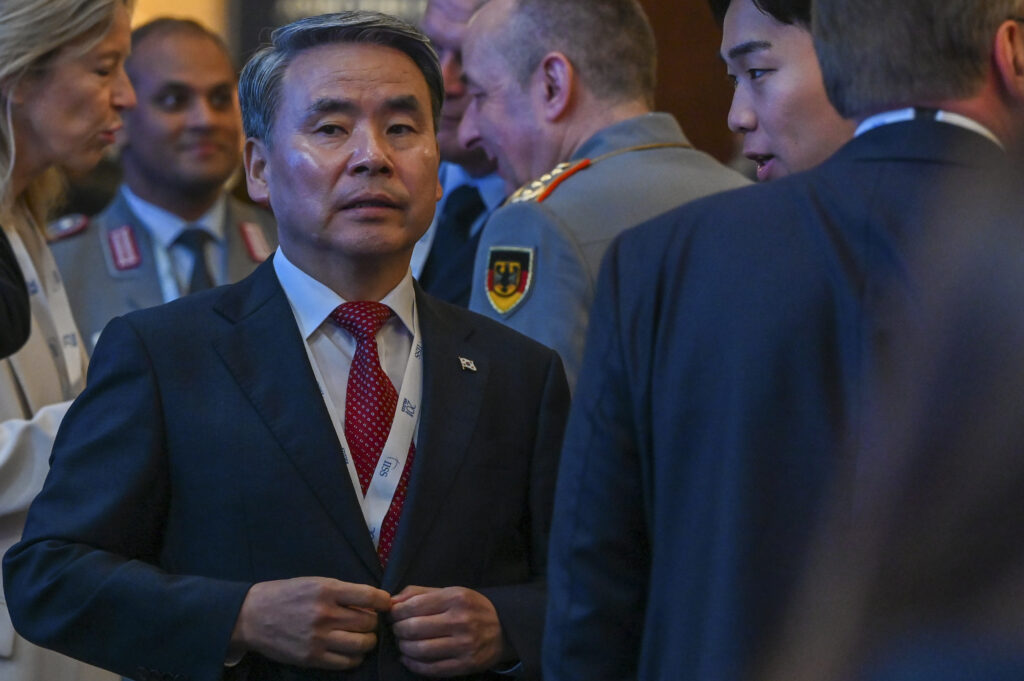
- ARAB NEWS
- 19 Apr 2024

Singapore: Japanese Defense Minister Yasukazu Hamada and his South Korean counterpart, Lee Jong-sup, agreed Sunday to accelerate talks between the two nations’ defense authorities to prevent any repeat of incidents such as one involving a South Korean warship directing its radar at a Japanese ship in 2018.
They denounced North Korea’s launch Wednesday of what it claims is a military reconnaissance satellite, believed to be using ballistic missile technology, while reaffirming their intention to strengthen defense cooperation between Japan, South Korea and the United States.
“We discussed a full range of issues, including the radar incident,” Hamada told reporters after the meeting, adding, “Japan intends to continue communicating with South Korea.” But Hamada stopped short of touching on details of his talks with Lee.
According to South Korea’s Yonhap News Agency, Lee told reporters that he and Hamada agreed to place weight on hammering out measures to prevent a repetition of the radar and other incidents. He also said that Seoul and Tokyo will start with working-level talks to resolve the issues.
This was the first meeting between the defense ministers of Japan and South Korea in about three and a half years.
In the high-profile incident in December 2018, when Moon Jae-in was in office as South Korean president, a South Korean warship directed its fire control radar at a Japanese Maritime Self-Defense Force patrol aircraft over the Sea of Japan.
Tokyo demanded that South Korea apologize over the incident and put in place measures to prevent a similar event. Seoul rebutted, claiming that the MSDF aircraft intimidated the South Korean side by flying at a low altitude at the time.
At Sunday’s meeting, Hamada and Lee shared the view that the North Korean launch on Wednesday violated relevant U.N. Security Council resolutions.
At a meeting in Singapore on Saturday, Hamada, Lee and U.S. Defense Secretary Lloyd Austin agreed to promote by year-end a system to enable Japan, South Korea and the United States to share information on North Korean missiles immediately after they are launched.
Japan-South Korea relations have been rapidly improving recently, with Japanese Prime Minister Fumio Kishida and current South Korean President Yoon Suk-yeol holding talks three times in and after March this year.
Defense exchanges between the two neighbors are also resuming. Bilateral security dialogue was held in April for the first time in five years. In late May, the Hamagiri destroyer of the MSDF made a port call in Busan in southeastern South Korea, flying the rising sun flag, regarded in South Korea as a symbol of Japan’s past militarism. The flag is the ensign of Self-Defense Forces vessels.
The United States is backing up the two East Asian countries’ fence-mending.
Meeting in Tokyo on Thursday, Hamada and Austin confirmed a policy of promoting the collaboration with South Korea to beef up the three nations’ responses to ballistic missile launches and other provocative actions by North Korea.
JIJI Press